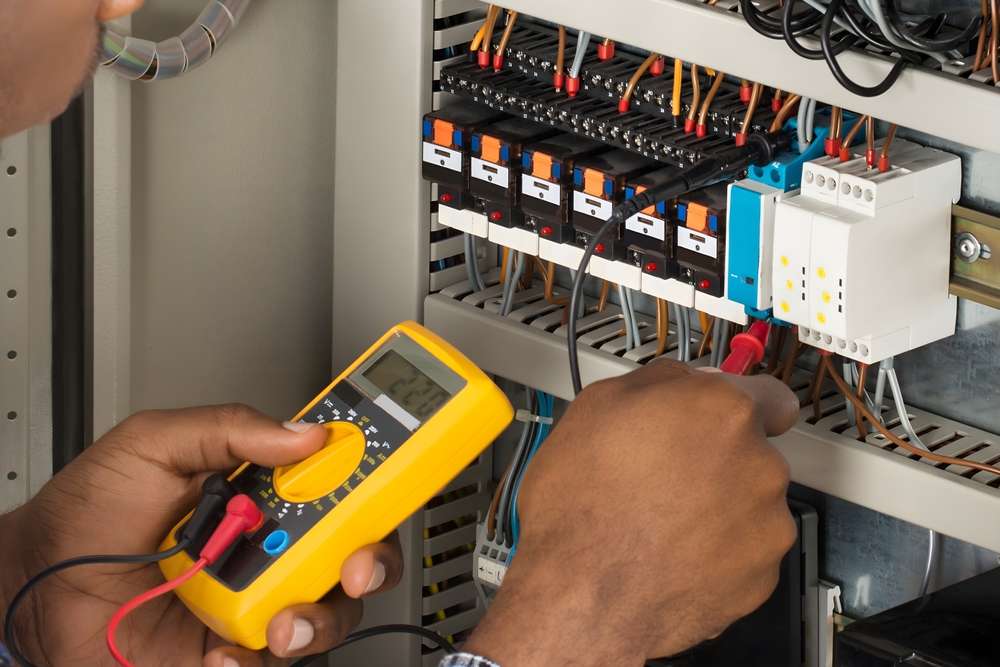The Importance of Professional Electrician Services for Home and Business Safety
Electricity is an essential part of modern life, powering our homes, businesses, and devices. However, working with electrical systems can be dangerous and complex, requiring specialized knowledge and skills. This is where professional electrician services come into play, offering expertise in electrical installations, repairs, and maintenance to ensure safety and efficiency.

-
Repairs and troubleshooting: Identifying and fixing electrical issues, such as faulty wiring, circuit breaker problems, or power outages.
-
Upgrades and improvements: Updating outdated electrical systems to meet current safety standards and energy efficiency requirements.
-
Safety inspections: Conducting thorough assessments of electrical systems to identify potential hazards and ensure compliance with local codes.
-
Emergency services: Responding to urgent electrical issues that pose immediate safety risks.
Why is proper electrical wiring crucial for safety?
Proper electrical wiring is fundamental to the safety of any building and its occupants. Faulty wiring can lead to numerous hazards, including:
-
Electrical fires: Overloaded circuits, loose connections, or damaged wires can generate excessive heat, potentially causing fires.
-
Electric shocks: Improperly grounded or exposed wires increase the risk of electric shocks, which can be fatal.
-
Power surges: Inadequate wiring protection can leave appliances and electronics vulnerable to damaging power surges.
-
Short circuits: Poor wiring can result in short circuits, leading to power outages and potential equipment damage.
Professional electricians have the expertise to ensure that all wiring is installed correctly, meets safety standards, and can handle the electrical load of the building.
How can professional electricians improve energy efficiency?
In addition to safety, professional electricians can help improve energy efficiency in homes and businesses. They can achieve this through:
-
Energy audits: Assessing current electrical usage and identifying areas for improvement.
-
Upgrading to energy-efficient lighting: Installing LED lights and smart lighting systems to reduce energy consumption.
-
Implementing smart home technology: Setting up automated systems that optimize energy use.
-
Improving circuit design: Ensuring that electrical loads are distributed efficiently across circuits.
-
Recommending energy-efficient appliances: Advising on the selection and installation of energy-saving electrical equipment.
By implementing these measures, property owners can reduce their energy bills and minimize their environmental impact.
What are the key safety considerations for electrical installations?
Safety is paramount when it comes to electrical installations. Professional electricians adhere to strict safety standards and considerations, including:
-
Code compliance: Ensuring all installations meet local and national electrical codes.
-
Proper grounding: Installing grounding systems to prevent electric shocks and protect equipment.
-
Appropriate wire sizing: Using the correct wire gauge to prevent overheating and fire risks.
-
Circuit protection: Installing circuit breakers and fuses to prevent overloads and short circuits.
-
Weatherproofing: Ensuring outdoor electrical installations are protected from the elements.
-
Regular inspections: Conducting periodic checks to identify and address potential safety issues.
How do electricians ensure safety during repairs and maintenance?
When performing repairs or maintenance, professional electricians follow strict safety protocols:
-
Power isolation: Turning off the main power supply before working on any electrical system.
-
Personal protective equipment: Using insulated tools and wearing appropriate safety gear.
-
Testing: Utilizing specialized equipment to verify that circuits are de-energized before work begins.
-
Risk assessment: Evaluating potential hazards before starting any electrical work.
-
Documentation: Keeping detailed records of all repairs and maintenance performed.
-
Continuous training: Staying updated on the latest safety practices and electrical technologies.
What qualifications should you look for when hiring an electrician?
When seeking electrician services, it’s important to choose a qualified professional. Look for the following qualifications:
-
Licensing: Ensure the electrician is licensed to work in your area.
-
Insurance: Verify that they carry liability insurance and workers’ compensation coverage.
-
Experience: Consider the electrician’s years of experience and expertise in your specific type of project.
-
Certifications: Look for additional certifications or specializations relevant to your needs.
-
References: Ask for and check references from previous clients.
-
Professional affiliations: Membership in professional organizations can indicate a commitment to industry standards.
Professional electrician services are crucial for maintaining the safety and efficiency of electrical systems in homes and businesses. By hiring qualified electricians, property owners can ensure that their electrical installations, repairs, and maintenance are performed to the highest standards, minimizing risks and optimizing energy use. Regular electrical inspections and prompt attention to any issues can prevent potential hazards and contribute to a safer, more comfortable living and working environment.






